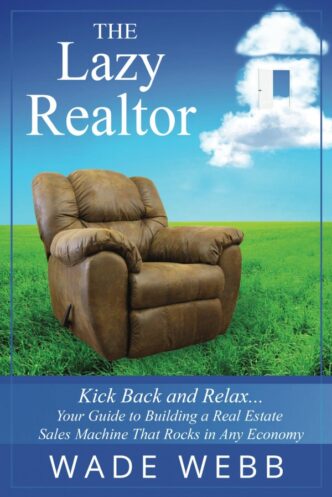 One of the greatest benefits of becoming a real estate agent is financial freedom and an unlimited income opportunity. However, the downside to this freedom is that it leads to undisciplined spending. The early years of my career I read and studied all I could about financial management and wealth building and this week I want to share the top ten financial independence tips that helped me personally and know will help you about saving for retirement, how to start accumulating your wealth, and how to have the right mindset when it comes to your finances.
One of the greatest benefits of becoming a real estate agent is financial freedom and an unlimited income opportunity. However, the downside to this freedom is that it leads to undisciplined spending. The early years of my career I read and studied all I could about financial management and wealth building and this week I want to share the top ten financial independence tips that helped me personally and know will help you about saving for retirement, how to start accumulating your wealth, and how to have the right mindset when it comes to your finances.
1. Pay Yourself First - First on our list of financial independence tips is to pay yourself first. But this doesn’t mean buying material items. Instead, it means putting your money into a savings plan. You need to think of saving as paying yourself. Most people tend to spend their money every month, and then they don’t have anything left over to save. You have to watch the flow of your money. Otherwise, you’re going to lose it. Start saving now, and save as much as possible. Start out by putting 10% of your income into a long-term savings plan. Every bit you save goes towards paying yourself in the future.
2. Continually Seek to Increase Your Savings Rate. - Even as a real estate agent you should calculate your dollar-per-hour wage. Take how much you earned last year or plan to earn this year, and divide it by 2000 (the average amount of hours one works in a given year). If you’re currently saving 10% of that amount, try to get it up to 20%. You can increase your savings rate in two ways. You can either earn more money, or spend less. Your ultimate goal should be to try to save 50% of your income. As a realtor, this is challenging because you’re not on a fixed income. As a result, you will have to be more disciplined with your income and how much you spend. One of my goals every year is to increase my dollar-per-hour wage. You can do this by either earning the same amount and working more hours, or earning more with the same amount of hours. Figure out which method is best for you so that you can eventually get to a point where you can save half your income.
3. No Debt For Liabilities - One of the most common financial independence tips you might hear is to be careful with your debt. There is an argument for taking out debt for an asset. However, it’s not the same when it comes to liabilities. For example, going into debt to purchase a car for real estate agents. When you do this, you’re stealing money from your future self and will pay the price in the long term. If you’re in the habit of taking out debt and never saving, that’s ultimately costing you your wealth. If you currently have debt for liabilities, get on a system, like You Need a Budget (YNAB), to try and eliminate that debt as quickly as possible. Check out my other post on how to eliminate debt. Three small bags with dollar signs sit inside of a wooden outline of a house.
4. Invest in Education. - This can be specific education related to your job, or just general financial or business education. Investing in your education is important because we get paid for what we contribute through our knowledge. Think of it as investing in yourself. Utilize resources such as classes, conferences, training courses, videos, and books that can help you build on your current skills. Check out this post on the 25 best real estate agent books to help you get started.
5. Take Ownership of Everything. - The sooner you take ownership of everything, the sooner you can get on track to improving your time management and growing your wealth. For example, if something negative happens to you, take on the responsibility to figure out the solution. Try and see how you can be a part of that solution, rather than waiting on somebody else to find it for you.
6. Actively Seek Out Problems to Solve. - You need to have the mindset to actively seek out problems rather than avoid them. You should solve your own challenges first before you move on to helping other people. Solving other peoples’ problems will make you more valuable, help you contribute more, and get wealth to come your way. When you start to solve people’s problems, you stop being a dollar-per-hour employee and instead begin moving up the ladder to eventually run your own business.
7. Leverage Resources. - At a certain point, it becomes hard to progress your business when you’re the only one running the show. This is why you should leverage other people to help you. For example, you could hire a virtual assistant and transaction manager. Additionally, you can find other ways to diversify your income streams. Building my online content business is yet another way I can diversify my income and solve problems for other people. In addition, you need to leverage your money. This can mean putting your money into a wealth account or purchasing rental real estate. Think of every dollar as an employee that can work for you to earn more money.
8. Stop The Dollar Per Hour Mindset. - If you want to advance your career, you need to stop thinking of yourself as a dollar-per-hour employee. When you have a dollar-per-hour income, you’re at a ceiling because there’s a maximum amount that somebody’s willing to pay you. But when you tie your value to helping other people, that ceiling becomes endless. For this reason, you have to start thinking about how you can help other people, even if it’s just a side hustle that you do in addition to your primary job. Build something that you can scale up over time and that can start to accumulate wealth. Build something that provides value for other people. A person dropping a quarter into a jar of money labeled "Retirement."
9. Have a Clear Plan For Your Financial Future. - To come up with a plan for your financial future, you should ask yourself: What is your net worth today? What do you want your net worth to be five years from now? Ten years from now? Do you have spreadsheets that you track your goals on? Know what you want your wealth to be in the future, and then you can start to figure out what you need to do to get there. Even if you don’t have any wealth and just want to get out of debt, what is your one-year plan to do that? Three-year plan? Once you have a concrete plan for yourself, it becomes easier. There’s a saying that goes, “If you don’t have a vision for yourself, you’ll become part of somebody else’s vision.”
10. Take Calculated Risks. - Calculated risk means taking safe risks that you believe have a high probability of paying off. For example, every year I allocate 10% of my annual budget for “R&D” (Research and Development). If you think about it, almost every company has this built into their budget. So why should it be any different for real estate agents? This could mean investing in a new type of lead generation, or a new side hustle entirely. But the 10% doesn’t have to be purely financial, it could also include your time. It’s better to take calculated risks and learn all the necessary skills to be an entrepreneur. That way, no matter what happens in your financial future you’ll be prepared.
Final Thoughts on Financial Independence Tips for Real Estate Agents. Following these ten financial independence tips will help you have the proper mindset to properly manage your finances and save for retirement. Increasing your wealth takes time. But if you stay disciplined and stick to these tips, you’ll have a bright financial future ahead of you. What are you currently doing to diversify your income? What investments are you putting your savings in? I’d love to hear from you! Now, be well and go sell some homes!
Strength and courage,
Wade



